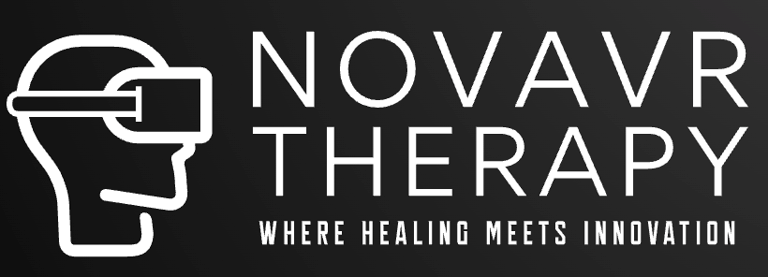Step into the future of counselling & psychotherapy in Ottawa with NovaVR’s immersive VR therapy. Call today for a free consultation: (613) 501- 2175
The Coverage Gap: How Insurance Providers Fall Short on Counselling and Psychotherapy In Ottawa — And What It Means for Accessibility
In recent years, awareness and acceptance of mental health care have grown significantly across Canada. Conversations about anxiety, depression, trauma, and burnout are no longer taboo, and more individuals than ever are seeking professional support through counselling and psychotherapy. Despite this cultural shift, access to affordable mental health care remains a challenge for many Canadians. A significant contributor to this problem lies within the limitations of private health insurance providers such as Telus Health, GreenShield, Canada Life, Sun Life, and Manulife. Although these providers claim to support mental wellness through extended benefits plans, the actual financial support they offer for counselling and psychotherapy is often far from adequate.
NOVA VR THERAPY
Athem Houssein
7/1/20254 min read
Most extended health insurance plans only cover a portion of the costs associated with therapy sessions. For example, Canada Life, a major provider across Canada, may reimburse clients up to $90 per session for therapy. However, the average cost of a one-hour psychotherapy session in Ontario ranges between $160 and $220, depending on the clinician’s credentials and the type of therapy offered. This means that even with coverage, individuals are often left to pay $70–$130 out of pocket per session. That’s not just a minor inconvenience — for many people, especially those living on tight budgets or managing family expenses, this additional cost is a major barrier to accessing consistent care.
To make matters worse, most plans also include a restrictive annual cap. Even if a provider offers $100 per session, the total annual limit is often just $500 to $1,000. If each session costs $200, this means the coverage only lasts for five sessions before the individual is responsible for the full cost. Given that meaningful therapeutic progress often requires 8 to 20 sessions or more, depending on the nature and complexity of the issue, these caps fall dramatically short of providing adequate support.
Some plans only cover therapy from specific regulated professionals, such as registered psychologists or clinical social workers, while excluding other qualified mental health providers like psychotherapists or counsellors. This further limits accessibility, especially in regions where psychologists may have long waitlists or charge even higher fees. In some cases, people are forced to either wait for months to see someone covered under their plan or to pay more upfront for a therapist who isn’t eligible under their policy. In both scenarios, the client loses — either in time or in money.
Moreover, many insurers require clients to pay the full cost of the session upfront and then submit a reimbursement claim afterward. For individuals already struggling financially, this “pay now, get paid later” model can feel like a burden. If someone is attending therapy weekly, they could be advancing hundreds of dollars per month and waiting weeks or longer to be reimbursed — assuming the claim is approved at all. For those living paycheque to paycheque, this simply isn’t a sustainable way to receive mental health care.
The net result is that even individuals who technically have “coverage” for mental health services still face significant barriers when seeking care. Therapy becomes a luxury, accessible only to those who can afford to pay out of pocket or cover the gaps left by insurance. This contradicts the very principle of health insurance, which is meant to ensure equitable access to essential care. For mental health, the system is falling short.
The consequences of these gaps are far-reaching. When therapy is unaffordable, people delay or forgo treatment altogether. Issues like stress, anxiety, depression, trauma, and burnout often worsen over time if left untreated, leading to more severe outcomes such as substance abuse, disability leave, or chronic physical health problems. In workplaces, this translates into higher absenteeism, reduced productivity, and increased turnover. For society at large, it contributes to pressure on the public health system, emergency services, and long-term disability programs — all of which cost more than preventative care like counselling.
What makes this even more frustrating is that mental health care is not covered under the Ontario Health Insurance Plan (OHIP), except in limited circumstances. While services provided by psychiatrists and some community agencies are covered, these often come with long wait times and limited availability. For the majority of Ontarians, private therapy is the only viable option — and private insurance does not go nearly far enough in bridging the affordability gap.
To put this into perspective, imagine a person covered under Canada Life who is experiencing work-related burnout and anxiety. They find a therapist who charges $200 per session. Their plan covers $90 per session, which means they are paying $110 out of pocket each time. If they attend therapy weekly, that’s $440 per month. Over the course of just five sessions, their annual maximum is exhausted, and the remaining sessions must be paid in full. In this scenario, the client still ends up paying over $2,000 per year, despite having insurance. It’s easy to see why many people either don’t start therapy at all or stop prematurely because they simply cannot afford to continue.
This affordability crisis affects not just individuals, but families as well. When one member of a household needs support — whether it’s a child struggling at school, a partner coping with trauma, or a parent dealing with depression — the ripple effects are felt by everyone. Unfortunately, most insurance plans don’t extend coverage to family members unless explicitly stated, leaving families to shoulder the costs themselves. This lack of flexibility makes it harder for households to prioritize mental health, even when they recognize its importance.
At NovaVR Therapy, we believe that mental health care should be affordable, accessible, and impactful — not a privilege for the few. That’s why we’ve created targeted discounts and affiliate programs to close the affordability gap left by traditional insurance models. For example, our corporate affiliate program allows selected businesses to offer employees and their families access to discounted counselling and psychotherapy services — up to 40% off — with no insurance required. Similarly, we offer direct discounts to self-employed individuals and those without adequate coverage, ensuring that mental health care remains within reach regardless of employment status or insurance provider.
Until provincial healthcare systems and insurance companies address these deep-rooted issues, the responsibility will fall on clinics, communities, and forward-thinking organizations to bridge the gap. It’s time we recognize that mental health is not secondary care — it is essential care. And essential care should be both accessible and affordable to all who need it.


Athem Houssein
SOCIAL WORKER (MSW)
Rebecca Bates
SOcial Worker (MSW)
DeRoux Jones
Psychotherapist. (q)
Emily Light
Psychotherapist. (q)
Show You Care 💚
Whether you're a business, nonprofit, school, or agency, this is a simple, meaningful way to support mental health — without adding administrative burden. We'll provide everything you need to launch the benefit quickly and effectively.
You're Invited to Join the NovaVR Corporate Affiliate Program
Support your team’s mental well-being with exclusive access to discounted therapy services.
✅ Click the box below to confirm your interest and receive your corporate access package.


